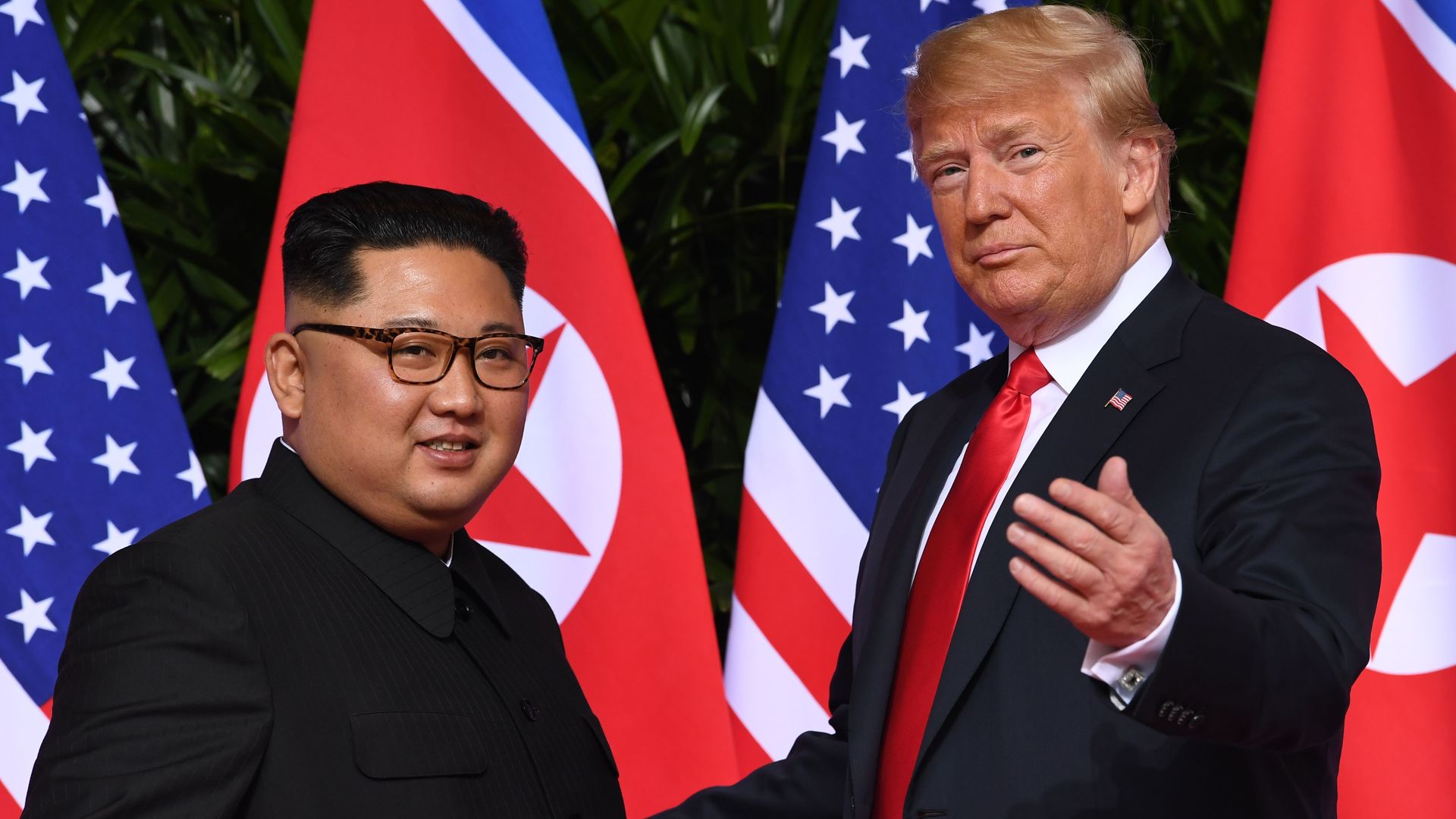Jun 12, 2018 - World
What they're saying: Experts react to Trump's North Korea summit
Add Axios as your preferred source to
see more of our stories on Google.

Photo: Saul Loeb/AFP/Getty Images
With President Trump and North Korea's Kim Jong-un signing a vague but hopeful document following their historic summit, experts are weighing in on what it means for both countries — and the world.
The general consensus: We are much further from war than we were six months ago, but the U.S. made a significant concession by cancelling joint military exercises with South Korea, while North Korea didn't give up much of anything.
- Richard Haass, Council on Foreign Relations president, writing for Axios: "The good news is that the Singapore summit initiated a diplomatic process with the potential to make a contribution to stability and peace. War seems much more distant than it did just months ago. The bad news is that 'potential' is the operative word here, and we are off to an unbalanced start."
- Michael Hayden, former CIA director, on CNN: "The North Koreans did not come with anything new. The new element is that we agreed to stop our annual exercise cycle with our South Koreans allies. That's actually a pretty significant concession."
- Bruce Klinger, Heritage Foundation, on Twitter: "This is very disappointing. Each of the four main points was in previous documents with NK, some in a stronger, more encompassing way. The denuke bullet is weaker than the Six Party Talks language. And no mention of CVID, verification, human rights."
- Ian Bremmer, Eurasia Group, on CBS: "What we have is a freeze for freeze. The North Koreans are freezing their ICBM and nuclear tests and the Americans are freezing our military exercises with the South Koreans. That's exactly the formation the Chinese asked for over the past year and we said absolutely not. ... I think the biggest win is ... it's almost inconceivable now that there's a short-term risk of military conflict."
- Lawrence Freedman, King's College London, on Twitter: "Viewed in the light of past diplomacy around NK’s nuclear program there is a strong sense of déjà vu: warm declarations about a non-nuclear future without any clear steps showing how it will be reached. ... A difference from past agreements is that NK has used that time to become a nuclear power."
